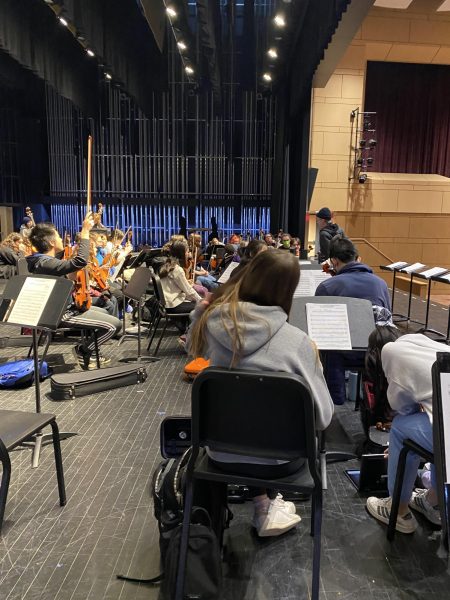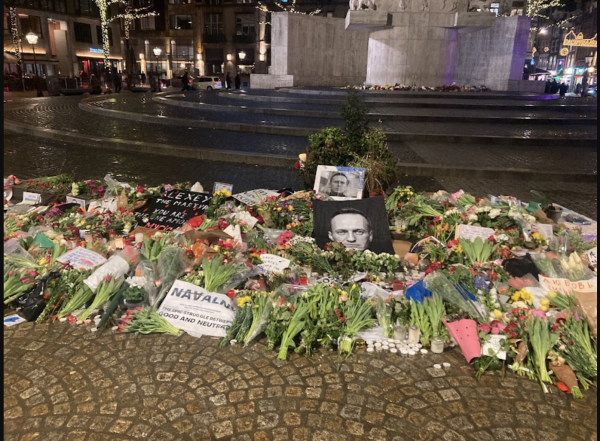World Cup 2022: Red Card for Human Rights
December 19, 2022
Every four years, the entire world comes together for, arguably, one of the biggest celebrations of sports, patriotism, and long term rivalries.
Having been hosted in virtually every continent, the World Cup boasts 211 member nations – more than the United Nations at 18 less with 193 member states. In 2018, over 3.5 billion people tuned in to watch the tournament held in Russia.
Soccer holds vast power and influence in the world of sports and politics. Being the most popular ball game in the world, soccer has been played for centuries by people (though modern soccer as we know it originated in late 19th century England).
Alex Kimbro, a social studies teacher and assistant for the State High Boys Soccer program, has been involved with the sport in some form for his whole life. He explained that outside of the US, soccer is more than just a sport.
“When we look at other countries in the world that are older than us in terms of how long they’ve existed, soccer has become something that is ingrained in their cultural practices and really popular as not only a professional, but a really popular leisure sport as well,” Kimbro said.
Henry Pinto, a senior, played mid-field and forward on the State High Boys soccer team. He explained that for his family, soccer has always been there. “It’s kind of built into heritage, like, my family’s always been playing. My dad grew up in Argentina and our family’s just soccer based,” Pinto explained.
A sport celebrated and enjoyed all over the world with billions of fans, provides an opportunity for massive influence and impact. The 2022 World Cup in Qatar brings an increase in tourism and economic growth as well as an estimated 5 billion viewers watching their country’s stadiums. However, all these benefits came with a massive cost; over 6500 migrant workers have died in Qatar since it was granted the right to host the cup in 2010. Amid a slew of other controversies including anti-LGBTQ laws, treatment of women, and censorship, many teams and activists have protested in Qatar and called into question the governing body behind the 2022 World Cup.
FIFA (Fédération Internationale de Football Association), the governing body behind soccer and the World Cup, has had its own history of being, as Pinto described “a little sketchy.”
Started in Paris in 1904, FIFA was created to regulate the sport of soccer for its European members. Membership grew around the world alongside the popularity of soccer and in 1930, the first World Cup was held in Uruguay.
Since then, FIFA and football have grown to be enormously popular, and profitable.
When in 2010, a country smaller than Connecticut lacking space and infrastructure with a team that had never qualified for a World Cup beat the US, Japan, and Australia, among others, suspicions arose.
The 2022 World Cup in Qatar and the 2018 Cup in Russia were announced in 2010 by officials and executives who in 2015, would be indicted for racketeering conspiracy and corruption.
There are many benefits for a country to host the World Cup. “You have people that are now spending money in the country that wouldn’t have before, and you also get a chance to, in the best cases, kind of brag on the world stage of some of the good things your country is doing,” Kimbro said.
With more than half of humanity watching, the World Cup, many see it as an opportunity to boast achievements, or to cleanse their bad image through “sportswashing”.
“Having that global picture on TV every day for nearly a month and a half just can be a nice almost advertisement for your country,” Kimbro explained.
This is not the first time World Cup host countries – and FIFA’s choice in granting them the right to host – were a bit… problematic. The 1934 World Cup, the second in history, was held in Mussolini’s Italy and in 1978 Argentina while it was under an oppressive, US backed, military dictatorship.
Several pieces of evidence suggesting bribery within FIFA involving the selection of Russia and Qatar were investigated internationally. In 2020, the US Department of Justice said that FIFA officials were bribed with millions to vote for Russia and Qatar.
Sepp Blatter, the president of FIFA at the time of the selection, admitted that Qatar “was a bad choice” for the 2022 World Cup. Blatter resigned amid turmoil within FIFA shortly after winning re-election for his fifth term.
He mostly referenced the size of the country when explaining why he thought it was unfit to host the World Cup. “Football and the World Cup are too big for that,” Blatter said when speaking to the Swiss newspaper, Tamedia.
There were several reasons Qatar was an irresponsible choice to host the World Cup. One being, hosting the cup requires massive infrastructure and lots of spending. Qatar, a country of 3 million people, reportedly spent over $200 Billion dollars (the most expensive World Cup to date) for over 1 million fans to arrive for the Cup.
Qatar essentially had to build a new city, Lusail, equipped with a subway system, hotels, and more to host the people as well as build seven new stadiums. To support such an endeavor Qatar brought in thousands of migrant workers from countries such as India, Pakistan, Nepal, Bangladesh and Sri Lanka.
Qatar has a long history of mistreatment and abuse within its migrant labor systems. Until recently, the majority of the migrant laborers (94% of the labor force in Qatar) were employed through a coercive labor system known as kafala. Many workers’ freedom to leave the country was up to their sponsor through legally binding documents–forcing workers into horrific conditions.
Workers reported that many had their passports confiscated upon entering Qatar and that many workers were crammed into tiny living spaces. A migrant worker from Nepal described to PBS how sometimes the food they were served was rotten and they were denied sufficient drinking water.
All of these issues were worsened by the extreme heat in Qatar – causing FIFA to move the tournament to November, disrupting many countries’ sporting seasons – which only exacerbated the conditions faced by workers.
With more viewers watching the World Cup than ever before, Netflix documentary exposés, and social media, these issues have a space to be discussed. Ultimately, what the controversies come down to is the following question: Does FIFA (an organization dedicated to regulating soccer) have an obligation to ensure that their designated host country follows internal human rights and has the ability to host the World Cup ethically?
“With today’s day and age, the second that you’re on a world stage and you have put yourself into the spotlight, I think you are asked those questions,” Kimbro said.
FIFA is certainly not new to controversy and the politics and money involved in sports. With all of the attention the 2022 World Cup has garnered, some wonder if this means change for FIFA and the international soccer community. “The curtain has been pulled back and now the general public is more aware,” Kimbro said.
“Although I’m not entirely sure FIFA will change… I think that the impact is still important. It’s still a thing that’s being spoken about now by foreign governments and human rights groups everywhere.”
Soccer fans have long had to juxtapose their love of the sport with the not so savory aspirations and greed of those behind it, and it’s unlikely this will change anytime soon.












